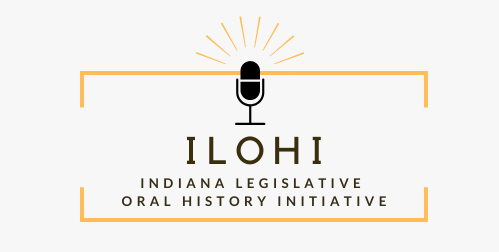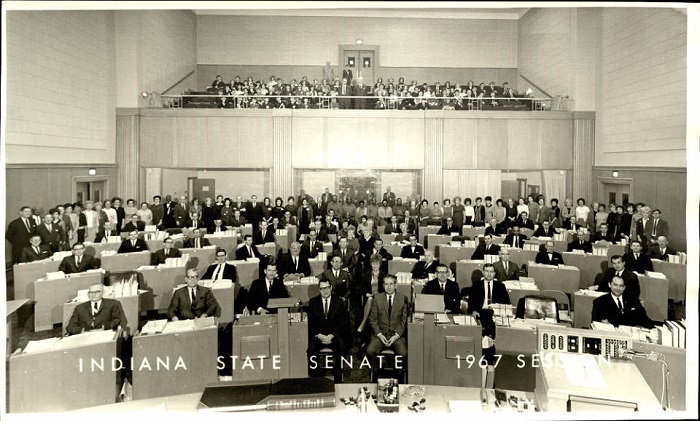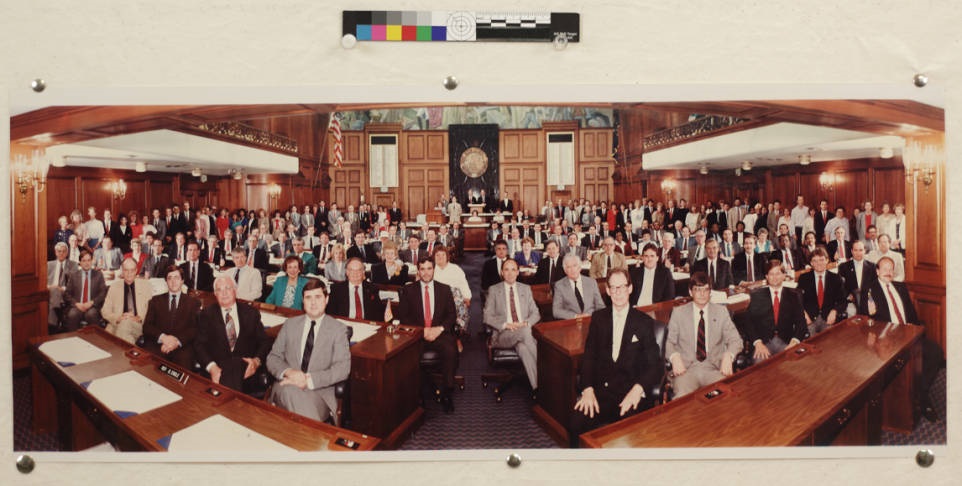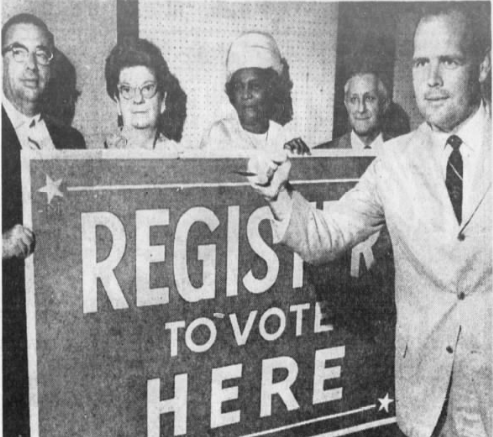
What if I told you there is a way to get an inside look at the politicians who govern your state? What if there was a place where you could find out not only who these politicians really are, but why they made the decisions they made? Most importantly though, what if I told you, what they do is ultimately up to you? The Indiana Legislative Oral History Initiative (ILOHI) serves as your gateway into the lives of Indiana’s former General Assembly members.
How the Project Began:
ILOHI was created by House Bill 1100 by the Indiana General Assembly (IGA) in 2017. It is an ongoing oral history project established to record the history of the IGA—from the latter part of the twentieth century to the present day—from those who experienced it first-hand.
What the Project Does:
Essentially, interviews are conducted, transcribed, preserved, and then eventually made publicly accessible. Thus, as ILOHI’s oral historian, I travel around the State of Indiana interviewing former legislators who served as early as the 1960s. I record their stories to provide a new history of the IGA and its members and shed light on the modern political and legislative processes that help shape our state. In turn, this project will highlight the ways in which Indiana has changed over the course of the last four decades and show lawmakers’ contributions and responses to this evolution. As a result, by sharing the history of the IGA and its influence on the people, processes, and institutions of the state, we can begin to more fully understand the role Indiana plays in a national and global context.

Why You Should Care:
State government, let alone government in general, can often seem like a remote and overly-complex process in which we have no control. Consequently, this feeling of powerlessness can sometimes cause us to remove ourselves from legislative issues. However, our role as citizens is far more influential than meets the eye. These are elected officials, meaning they work for us. They are voted into positions of power, because we the people chose them in hopes they will make our state better. Although we should be involved in what they do and how they do it, it is easy to feel intimidated by political officials and the political process. That’s where ILOHI oral history interviews come in. They can help demystify elected officials and inform you about the legislative process, so that you can better understand your state and the people who serve it.
As Ned Lamkin, former member of the Indiana House of Representatives from 1967 to 1982, states in an ILOHI interview:
It’s theirs [the people], and it will be whatever they want it to be, if they in fact want to have an influence. . . . The General Assembly is there to listen and respond to the needs of its citizens and if the citizens recognize that and think about how things could be better and organize to try to make them better, the General Assembly will ultimately respond.
Charlie Brown, former member of the Indiana House of Representatives from 1982 to 2018, informed the ILOHI that citizens:
have as much power as they want to have. . . . I often tell folks you don’t know how powerful you are. While I’m sitting there in the General Assembly and my staff comes to me with a stack of phone messages and all of them are centered around, most of them centered around one subject matter, something that I had not been giving much attention, I said, ‘Boy, I better find out more about this.’

Ergo, legislators may be members of the IGA, but the IGA answers to you. On the other hand, perhaps you already feel confident in your understanding of the legislative process and your role in it. But maybe you question the motives of some politicians and worry that political games or self-serving interests affect the actual will of the people. After all, nearly everyone can recall a story about a corrupt politician at the state or national level. But a blanket dismissal of state government and the men and women who are elected into these positions of power removes their human aspects and motivations. This is why when government officials are examined closely via ILOHI interviews, a different side of politics emerge—one that may just restore your faith in your elected officials or at the very least helps you see a different side of the story. As a matter of fact, you may even come to think that they chose to get involved in politics because they honestly wanted to dedicate part of their lives to helping Hoosiers and the state that they too call home.
Bill Frazier, former member of the 1969 Indiana State Senate, provided insight into the responsibilities of legislators in his ILOHI interview. He says a legislator should:
Be honest, and know politics is not an excuse to be dishonest.

Overall, these oral histories are meant to pull back the curtain and reveal the intentions and perspectives of legislators as they debated the policies, wrote the laws, and crafted the budgets in an attempt to shape and better the lives of Hoosiers today. Furthermore, the insights and lessons that emerge from their experiences are indispensable in understanding how we got to where we are today. If you care about your state, want to make a difference, and change how things work, let these interviews be a source of empowerment and reveal the nature of the relationship between the IGA and the citizens of Indiana. Because Indiana ultimately belongs to you, it requires interaction between elected officials and citizens, and the more citizens work with legislators to help make our state better, the more we all benefit.
